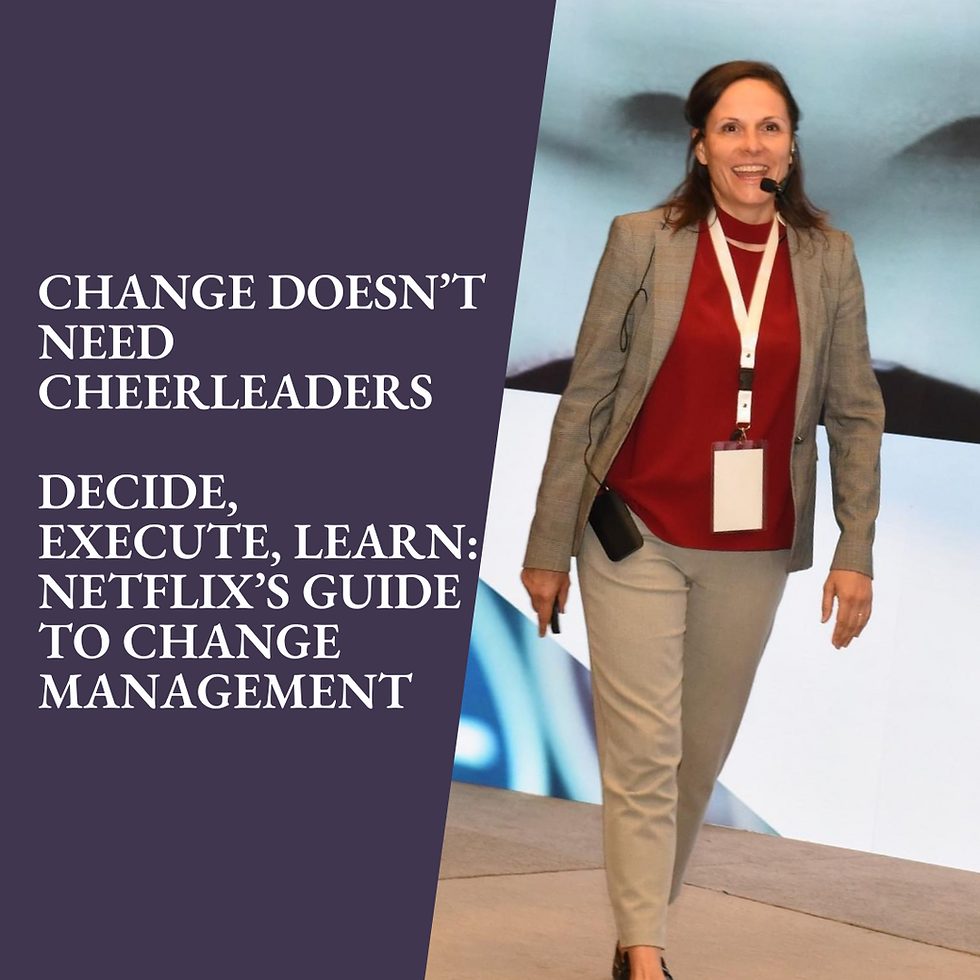Harness what makes you unique to excel as a manager
- Szilvia Olah

- Jul 31, 2021
- 3 min read
The employee experience begins and ends with YOU, the manager.
To be more exact, an employee's conversations with you, manager person, define your employee experience. A damaging conversation can be the flame that sets fire to that person's entire employee experience.
But the opposite is just as true. Effective and personal conversation between you and the employee engage them, keep them excited about their job, and improve their performance and wellbeing.
Gone are the days when you, the manager clocks in, delegates tasks and clocks out. Now, you must be intentional and authentic when speaking with your employees.
Just as importantly, leaders need as many managers as possible who know how to provide a great employee experience.
You don't need a one-size-fits-all approach. You need a personal shortcut because there's more than one way for people to excel at something.
In fact, people should be wary of the advice that the best way to do a job is the same way everyone else does it.
This simply isn't true. Great managers aren't great managers because they all manage the same way. They are great because they manage their way.
The first step to developing better managers is knowing just how important it is for them to succeed. Managers -- more than any other factor -- influence team engagement and performance. That's not an exaggeration: 70% of the variance in team engagement is determined solely by the manager. When managers show up to work with a deep understanding of how they'll use their strengths, they will have better conversations, greater performance results and higher engagement from their team.
Managers -- more than any other factor -- influence team engagement and performance. That's not an exaggeration: 70% of the variance in team engagement is determined solely by the manager.
The Strengths Company is in a unique position to help managers excel in this area: finding their best way to manage. Based on 25million assessment data we understand exactly what can happen when individuals live their lives using their strengths. And whether organizations want to improve the culture, increase employee engagement, strengthen well-being or improve relationships with customers, all hinges on the quality of the managers.
There's no "ideal set of strengths" that make a perfect manager.
You as a manager either make an organization succeed, or you make it fall behind. And you either inspire your employees to higher performance or turn them into enemies of the organization.
In other words, poor management produces poor outcomes, and excellent management produces excellent outcomes.
But if you're looking for a be-all and end-all to excellent management, you should know that an "ideal set of strengths" for great managers doesn't exist. We've seen successful managers lead with Command and Strategic, while others crush goals with Empathy and Positivity.
Great managers aren't great because they all manage the same way. They are great because they manage their way.
Your strengths don't determine if you're a good manager -- they tell how you can manage best. Between feeling pressure to meet performance goals, lacking time and resources, and balancing your own tasks with employees' tasks, your need something that works fast. Something that you already have but haven't yet discovered: your strengths.
For a more engaged organization, we start with the manager
You as a manager have conversations all day, every day. But are you talking to your people in a meaningful way or just going through the motions?
Imagine if they knew what they do best and felt more confident and engaged in their own role. Consider how that would positively affect your employees, the health of your teams and your organization's engagement overall.
The best way to increase team performance, engagement and wellbeing is to start with your, manager's strengths. It isn't just a good idea to help your managers use their strengths to make their days easier -- it's the right idea. To make the world a better place, we have to start with the workplace. And to make the workplace better? You guessed it -- we start with the manager.
What are your strengths? Let us help you figure it out and then put them to work.
Email us today: info@thestrengthscompany.com
.png)



Comments